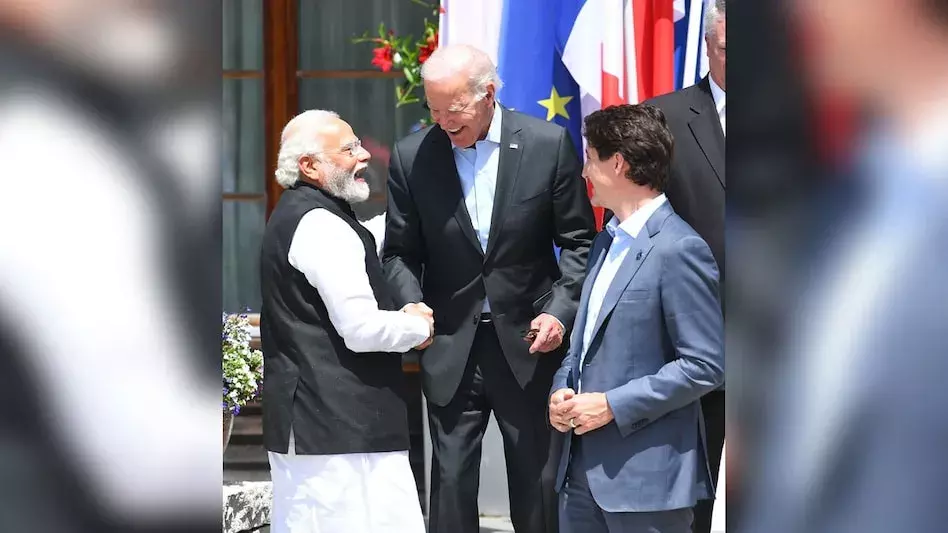Trudeau Under Pressure at Home To Share The Evidence
Next moves awaited

A diplomatic firestorm. Tit for tat action. A pause. And all concerned wait now for the next round that could determine the political direction that the Canada-India row will take.
The 48 hours since Prime Minister Justin Trudeau informed his Parliament that "Canadian security agencies have been actively pursuing credible allegations of a potential link between agents of the Government of India and the killing of a Canadian citizen, Hardeep Singh Nijjar”have been action packed. Canada expelled a top Indian diplomat. India rejected the statement as “absurd and motivated” and expelled a Canadian diplomat. US, Australia, with a more tentative UK have expressed concern over the Canadian allegations, and urged India to cooperate with the investigation.
While the media hosted debates in India follow predictable lines, given the Khalistan connotations, the Canadian media is raising questions for its Prime Minister to answer. Former National Security Advisors, senior journalists, foreign policy experts have been on Canadian television making the following points:
- Trudeau could not have made such an announcement without evidence;
- That he needs to share the evidence to substantiate his claims;
- That the support from the ‘five eyes’ has not been as expected and Trudeau faces diplomatic isolation;
- That he has taken on a strong country, a strategic ally that the West (including the five eyes) regards as important in its contain China policy and hence will be reluctant to shake;
- That if the evidence is shared, the US will have to choose between Canada and India, a Hobson's choice as it were;
- That Canada is risking its economy in the process;
- That India has made clear its stand and will not budge.
The Canadian experts seem to agree, however, that there is now a need for evidence to be shared and if it is as Trudeau stated then it is indeed a very serious breach by New Delhi.
The Canadian media, quoting sources, has also reported that the announcement was preceded by diplomatic efforts with India that did not work; that their PM’s hand was forced as a newspaper had got whiff of the story and was insisting on publishing it; that India did not agree and hence he was left with no choice but to make the allegations public. And that Turdeau had consulted and informed his allies who were on board.
Interestingly, despite the initial statements from the US, UK and others the Canadian media response to these was a clear ‘not enough’. Journalists on talk shows, and articles in the newspapers maintained that the allies were reluctant to support Trudeau on this, and had not stopped short of his expectations. In India the media went a step further to say he had been ‘rebuffed’ by the US following a Washington Post report that Canada’s initial requests to condemn the Sikh separatist leader Bardeep Singh Nijjar’s killing had been turned down.
National Security spokesperson John Kirby has since clarified, "There's been some press speculation out there ... that the US rebuffed Canada in terms of talking about their investigation, and I just want to stress that those reports are just flatly false, untrue.” Trudeau who is attending the United Nations General Assembly at New York is expected to intensify his diplomatic efforts for unmitigated support, even as many experts in his country maintain that India has “outgunned” him for the moment through the sheer exercise of what is recognised as muscular diplomacy. Significantly, both countries are counting on the US for support.
The story, thus, has not ended, and even Trudeau’s critics admit that he could not have made such a statement without support, and without sufficient evidence that is expected to determine his next moves. It is ironic though that the Canadian citizen in the midst of the storm is a known Khalistan proponent who was killed outside his religious school by two masked men, and a person who has little support outside his own limited section of the diaspora.



